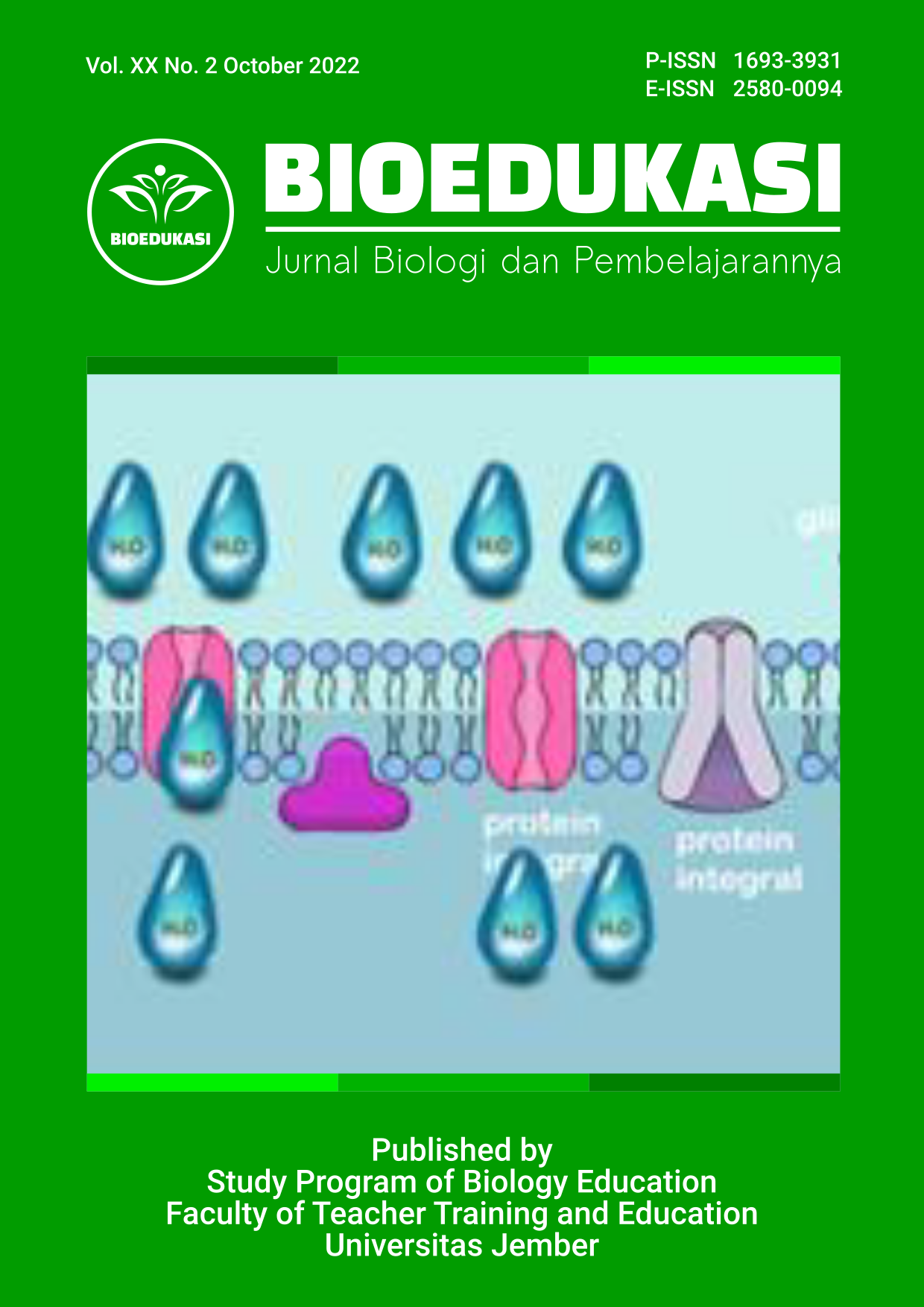A BOARD GAME DEVELOPMENT ON CELL MEMBRANE TRANSPORT MATERIAL
DOI:
https://doi.org/10.19184/bioedu.v20i2.27616Keywords:
board game, membrane cell transport, learning progression, rasch modelAbstract
Board games are one of the supporting tools for understanding complex material and abstract scientific concepts This study aims to develop a board game with cell membrane transport material and test the board game response by experts. This study is research and development. This board game was developed for class XI science students using learning progression. The research design used was adopted by Arnel A. Gutierrez's research. The steps used in this study include the preparation stage, game development, and response testing by experts. Test responses are carried out by distributing questionnaires to validators /experts using Google Form. The questionnaire assesses the content, instructions, appearance, and design of the media. Analysis of the validity of the instrument with five options using a Likert scale, given four choices between ranges of disagreeing, disagree, agree, and strongly agree. The results of data analysis using a ranking scale Rasch model may indicate that the validity of the score of the selected respondents indicated that the average value of observations shows a significant difference starting from logit -0.32 for selection score of 1 (disagree), and 0.96 for the selection quite agree, 2.58 for the agreeable choice and 5.69 for the strongly agree choice. Between these options, there is an increase in logit, which indicates that the scale on the questionnaire used is good. The Andrich Threshold average value starts from the value of none, negative -3.54 to positive 4.17 indicating that the answer option from the respondent is valid, which means the board game can be used.
Downloads
References
Cesar, Julio, Queiroz De Cavalho, Leila Maria Beltramini, and Nelma Regina. 2018. “Using a Board Game to Teach Protein Synthesis to High School Students.†Journal of Biological Education 9266(May): 1–12. http://doi.org/10.1080/00219266.2018.1469532.
Chiarello, Fabio. 2016. “Board Games and Board Game Design as Learning Tools for Complex Scientific Concepts : Some Experiences.†International Journal of Game-Based Learning 6(2): 1–14.
Ching, Dixie. 2012. “Passion Play : Will Wright and Games for Science Learning.†Cult Stud of Sci Educ 7: 767–82.
Neil.2014. “The Gamification of Higher Education.†Palgrave Macmillan.




